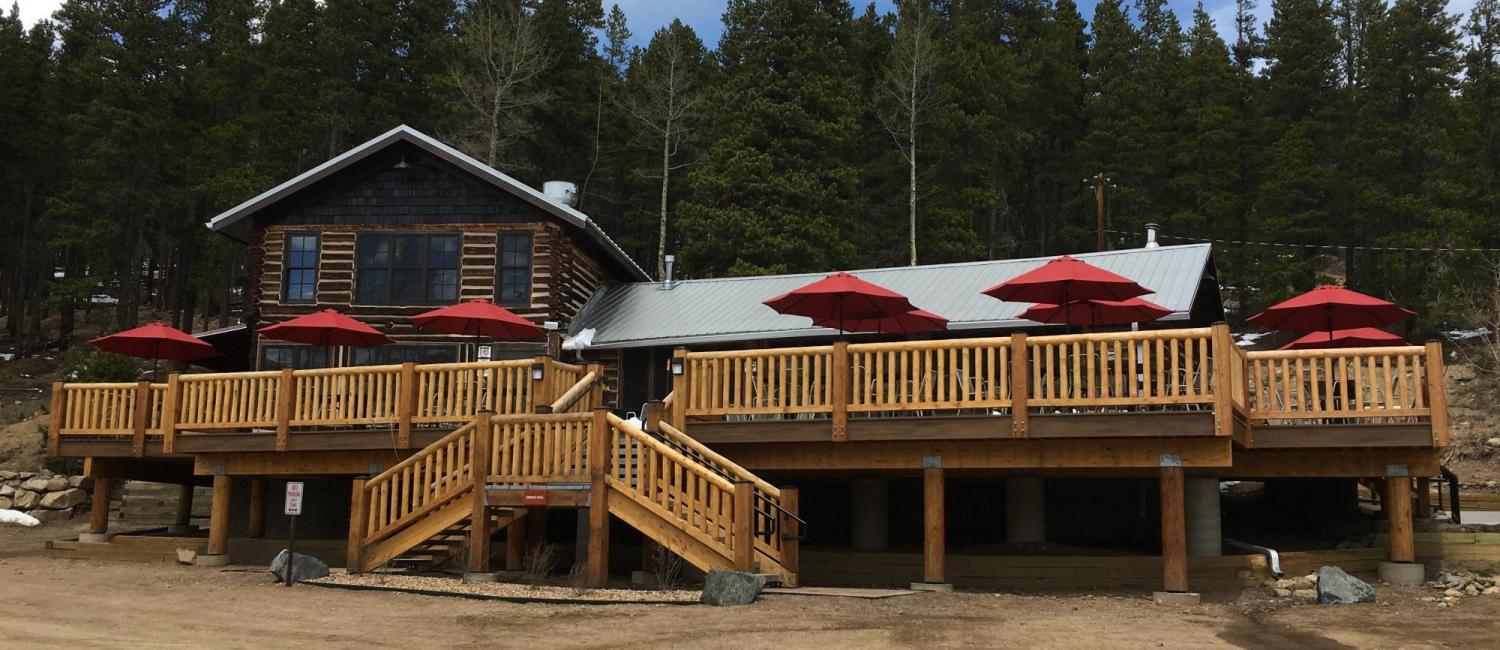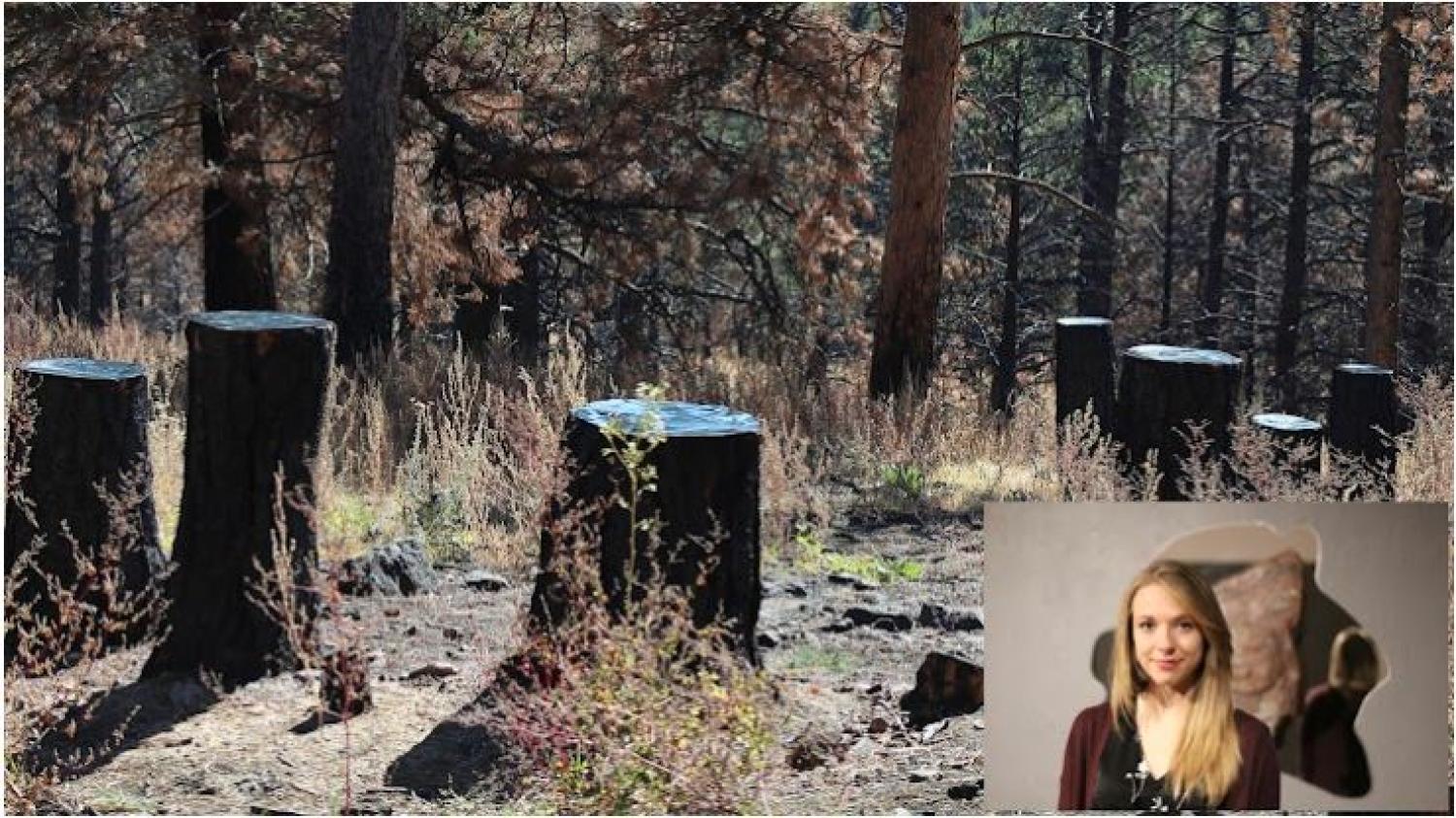100th Anniversary @ Mountain Research Station
100th YEAR (really 102nd!) ANNIVERSARY EVENT
SPECIAL EVENT OPEN TO THE PUBLIC!

As a kickoff to celebrating the 100th Anniversary of the CU Boulder Mountain Research Station (2 years late…) and the completion of the renovation to the historic Wildrose Dining Hall we will be holding a two-week special event – a dinner + seminar series. Visit https://forms.gle/Cjh2y3iYw5fBWRwJ8 to sign up for a dinner+seminar happening June 21,22,23 and June 28,29,30.
Dinner from 6-7, talks begin at 6:45
You must SIGN UP TO ATTEND, we will ACCEPT CASH OR CHECK ONLY (sorry, no credit cards/Venmo/etc.)
WEEK 1
June 21 (Tues) – Dr. Adrian Carper – Colorado's Wild Bees: Expanding the Conservation Impacts of Pollinator Research
June 22 (Wed) – Dr. Nancy Emery – Alpine plant responses to changing climate: Long-term trends and experimental insights from the Niwot Ridge LTER
June 23 (Thur) – Dr. Scott Taylor – The Boulder Chickadee Study: chickadee hybridization along the Front Range
WEEK 2
June 28 (Tues) - Amy Hoagland - MRS Artist in Residence - Sculptural Stories of the Land
June 29 (Wed) – Dr. Tom Veblen - Forty years of studying forest changes on Niwot Ridge
June 30 (Thur) – Molly Ott - MRS Artist in Residence - "Skin, Mirrored" - the shrinking locations of water surfaces and the subsequent reflections that come from those surfaces
Details on each seminar are below.
June 21 – Dr. Adrian Carper – Colorado's Wild Bees: Expanding the Conservation Impacts of Pollinator Research*
Dr. Carper is a community ecologist and has studied pollinators, their natural history, and ecology for over a decade. His current research through the Museum of Natural History focuses on the impacts of human land-use on native bee community ecology, and how natural history knowledge can help inform their conservation. In the Dept. of Ecology and Evolutionary Biology, he focuses on butterflies, and the impacts of exotic plants on the chemical ecology of multitrophic interactions. Both avenues for research underscore why improving our understanding of biological communities is crucial to mitigate the negative impacts of human-induced environments change.
June 22 – Dr. Nancy Emery – Alpine plant responses to changing climate: Long-term trends and experimental insights from the Niwot Ridge LTER*
Nancy Emery is an Associate Professor in the Department of Ecology and Evolutionary Biology at the University of Colorado Boulder and a co-investigator of the Niwot Ridge Long-Term Ecological Research project. Her research program focuses on understanding plant adaptation in spatially and temporally variable environments and the role of evolutionary processes in shaping plant responses to global change.
June 23 – Dr. Scott Taylor – The Boulder Chickadee Study: chickadee hybridization along the Front Range*
Scott Taylor is the Director of the CU Boulder Mountain Research Station and is an Assistant Professor in the Department of Ecology and Evolutionary Biology at the University of Colorado. Research in his group is focused on studying hybridization and speciation in birds to understand the genetic bases of traits involved in reproductive isolation, population divergence, and speciation, and the impacts of anthropogenic change, including climate change, on species distributions, interactions, and evolution.
June 28 - Amy Hoagland - MRS Artist in Residence - Sculptural Stories of the Land*

Amy Hoagland is a multidisciplinary artist that creates sculptural installations about the human
relationship within nature. She is interested in revealing the story that the land tells. Expanding
her studio into the surrounding landscape is an important part of her practice: many of her
concepts come from organizing her thoughts during time spent in the environment. Amy believes
in the power of empathy and creates work that connects viewers to their senses to cultivate
deeper empathy for our landscape.
Amy is a Louisville, Kentucky born artist. She received her BFA from the University of
Kentucky in 2016 and her MFA in Sculpture from University of Colorado, Boulder in 2022. She
is a 2022 recipient of a Windgate Fellowship for sustainable art presented by Honoring the
Future. Amy is passionate about art’s ability to create social change and is a member of the
Boulder/Denver Art + Science + Action cohort as well as Engaged Arts and Humanities Scholars
at the University of Colorado, Boulder. She is a recipient of a 2021 RedLine Insite Fund in
support of a community based artwork created to advocate for hope and resilience in the wake of
local climate events. She currently lives and works in Boulder, Colorado.
June 29 – Dr. Tom Veblen - Forty years of studying forest changes on Niwot Ridge*
Dr. Veblen is a Distinguished Professor Emeritus of Geography at CU Boulder. His main research interests are in forest ecology and vegetation dynamics in relation to natural and anthropogenic disturbances, especially as related to climate variability. He uses tree rings to date past disturbance events such as fire and insect outbreaks. For more than 25 years he has been investigating how disturbances such as fire, blow down and bark beetle outbreaks interact in the forested landscapes of the Colorado Rocky Mountains.
June 30 – Molly Ott - MRS Artist in Residence - "Skin, Mirrored" - the shrinking locations of water surfaces and the subsequent reflections that come from those surfaces*
Molly Ott is a South Carolinian whose work is always considering rituals of Americana and the personal myth. Gridding, collecting, and arranging each have a part in her language but absurdity is the most preferred principle of all.

